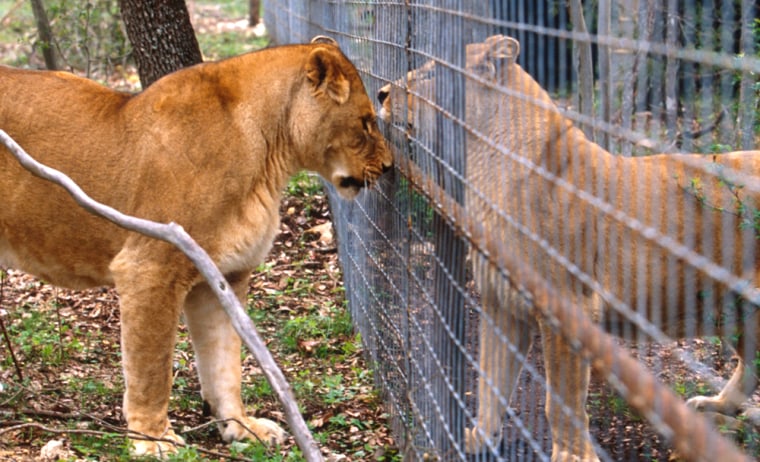South Africa’s government announced restrictions Tuesday on the hunting of lions born and raised in captivity, overriding protests by breeders who warn they could face financial ruin and be forced to euthanize their animals.
The laws protect lions from being hunted until two years after they are released into the wild and have developed survival instincts, said Environment Minister Marthinus van Schalkwyk. They also ban hunting from vehicles and using a bow and arrow to kill big predators and thick skinned animals.
“South Africa has a long-standing reputation as a global leader on conservation issues,” he said. “We cannot allow our achievements to be undermined by rogue practices.”
South Africa is famous as the home of the so-called Big Five animals — elephants, rhinoceroses, lions, buffalo and leopards — and its flagship Kruger National Park attracts hundreds of thousands of camera-toting visitors every year.
High cost of hunting
Some 9,000 privately owned game farms and other government-run reserves also offer visitors a taste of the wild. But the country has also become a choice destination for wealthy hunting tourists willing to pay a high price to take home a prized trophy.
In 2004, 190 lions worth an estimated $3.3 million were hunted in 2004 by foreign tourists, according to the TRAFFIC wildlife trade monitoring network.
The main Professional Hunters’ Association of South Africa has welcomed the new legislation.
But the South African Predator Breeders Association, set up last year to lobby against the new laws, recently warned that it would take legal action against the government. The group argues the new rules could ruin their businesses — set up with government authorization — and force them to euthanize their lions.
Hunting is an integral part of South African life because of its cultural traditions and importance to the economy. Van Schalkwyk himself is an avid hunter.
Governtment panel documents abuse
But a government panel has found horrific examples of abuse, including killing tranquilized animals and hunting big game with a bow and arrow, condemning them to a slow and painful death.
Van Schalkwyk said he has seen footage that shocked him: “To see people who are half drunk on the back of a truck hunting lions which are, in fact, tame animals is quite abhorrent.”
Conservationists say lion cubs are sometimes removed from mother at birth so she will mate again quickly, and that female cubs are sometimes destroyed because the males fetch more money as “trophies.”
The new law, which goes into force June 1, followed three years of consultation with the hunting industry and conservation groups. It is tougher than a draft issued late last year which would only have required predators to be released from captivity for six months before being hunted.
Van Schalkwyk said six months was not long enough for an animal bred in captivity to develop self-defense instincts.
Conservationists, however, warn that an industry notorious for turning a blind eye to regulations is unlikely to respect the time delay and the Environment Ministry does not have the means to monitor it. The ministry says breeding outfits and game farms will have to be registered in the future.
